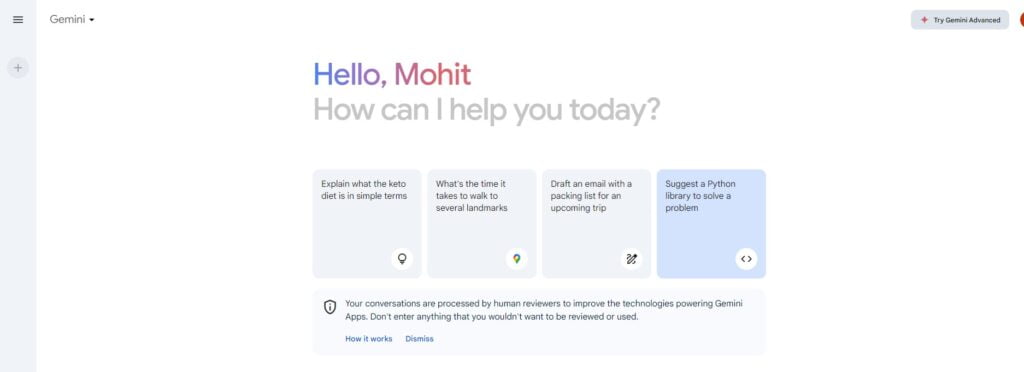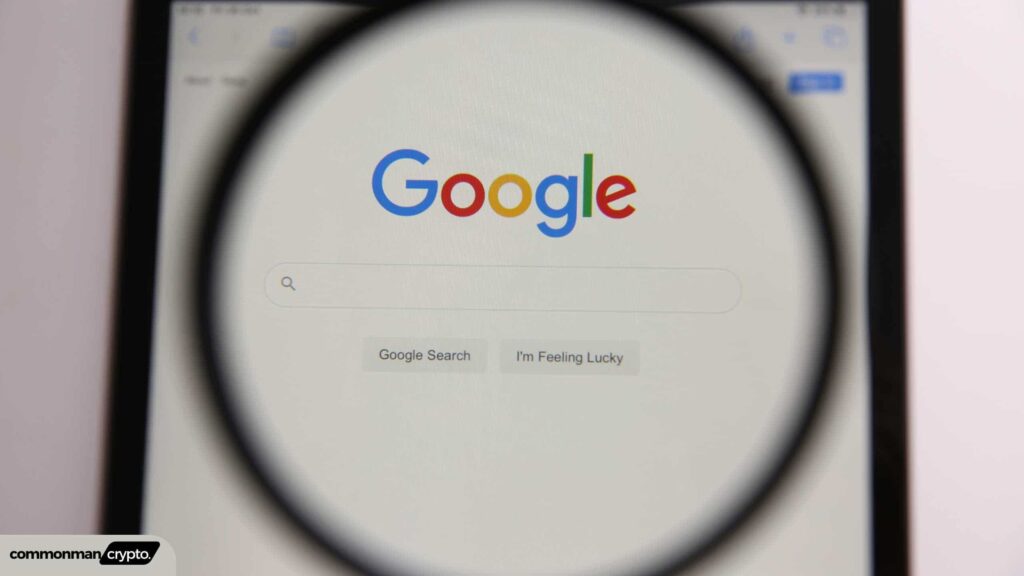OpenAI was long the reigning force in artificial intelligence (AI) and chatbot technology, with their GPT-4 large language model (LLM) powering ChatGPT (alongside Microsoft Copilot). OpenAI established itself early and since has had to catch up.
OpenAI faces new competition in the form of Google Gemini, which was announced in late 2023 and made its debut appearance in February 2024. From then on, it made waves in AI circles.
But is Google Gemini enough to defeat GPT-4? We took an in-depth look into its world to provide answers and find more about what it can do now and in the future, how to use Gemini yourself, and more. If you want more insight into Google’s AI efforts, then this is where you should come for answers!

HIGHLIGHTS:
| Aspect | Summary |
|---|---|
| OpenAI’s Position | OpenAI was a leading force in AI with GPT-4 powering ChatGPT and Microsoft Copilot. It needs to catch up now. |
| New Competition | Google Gemini, announced in late 2023, debuted in February 2024, making significant impacts in AI. |
| Google Gemini Overview | Google Gemini is the latest large language model (LLM) from Google, replacing Bard and integrating multiple AI tools and features. |
| Features of Gemini | Google Gemini is multimodal, accepting inputs like text, code, audio, images, and videos. It simplifies access through various interfaces and devices, including a dedicated app for Android. |
| Different Versions | Gemini has several versions: Gemini Pro (free, basic model), Gemini Ultra (paid, advanced model), and three sizes (Nano, Flash, Pro, Ultra) to cater to different needs. |
| Capabilities | Gemini Pro handles simple tasks and integrates with Google services. Gemini Ultra offers advanced features like multi-step queries and complex task handling. |
| Performance | Initial versions faced some issues, especially on Android, but Google is addressing these quickly. The paid version, Gemini Ultra, provides comprehensive capabilities. |
| Usage | Gemini can be used via a web interface, Android app, or integrated into other Google services. The Advanced subscription offers enhanced AI experiences. |
| Comparison with GPT-4 | Google claims Gemini outperforms GPT-4 in certain benchmarks, but GPT-4 has been in public testing longer, and the competition remains close. |
| Pricing | The standard version is free, while the Advanced version costs $19.99/month, offering additional features and cloud storage benefits. |
| Release Date | Gemini was released on February 8, 2019, replacing Bard and rolling out across US devices, with further expansion planned. |
WHAT IS GOOGLE GEMINI?

Google Gemini is its latest large language model (LLM). What exactly is an LLM? An LLM powers AI tools you may have encountered or interacted with online, such as ChatGPT Plus from OpenAI or GPT-4, which powers ChatGPT Plus chatbot.
Gemini is more than an AI model; it’s also the new name and identity for the Bard chatbot. Bard no longer exists as Gemini now fully replaces Bard and serves both models and bots alike. Furthermore, Google has made things even simpler by calling both its underlying model and bot Gemini; Android phones even now include a free Gemini app to use directly, while on iOS, Gemini can be found directly within their Google app.
Google recently unveiled its Duet AI service for businesses, such as Gemini for Workspace, with a variety of productivity-enhancing features available to users.
Gemini Advanced offers consumers a paid subscription offering for its AI that utilizes a more powerful LLM called Gemini Ultra; those subscribed to Google One AI Premium gain additional advantages by using this model.
As previously discussed, all of Google’s AI properties have now been combined under Gemini to streamline things for consumers and businesses, whether accessed through its web interface, an assistant app on smartphones, or assistant functionality on other platforms.
WHAT CAN GEMINI DO?
As previously discussed, Gemini represents an umbrella for many different AI features and functionality to be offered through multiple channels.
Google described Gemini in its first press release as being multimodal, which means it can accept and produce various forms of input such as text, code, audio files, images, and videos, giving it more flexibility in performing various tasks.
Google has implemented two separate LLMs with its AI: Gemini 1.0 Pro for free version AI and Gemini 1.0 Ultra for subscription AI (Gemini Advanced). While moving everything under Gemini may make things simpler and less confusing at first glance, its implementation has introduced some complications and caused confusion over time (with different products bearing this name).
All that’s really necessary to understand is that Gemini Pro, the free version, is a much simpler model that lacks creativity and depth compared with Gemini Ultra LLM, which costs $599.99.
Gemini Pro can perform many useful tasks, from answering simple queries and creating images to connecting to Google services such as Gmail, Maps and YouTube – so if you ask it for sightseeing recommendations, it will appear on these platforms!

Android smartphone owners have some exciting capabilities at their fingertips, and Android smartphone users get extra mileage out of them with the Gemini app. As previously noted, this can completely replace Google Assistant on an Android device or can simply serve as an AI helper via other Google services (Maps, search, or even Assistant itself – though Gemini still lurks below your screen as an option). But Gemini doesn’t replace Assistant exclusively. Instead, you can use Gemini whenever AI assistance is required or you need help.
Are You Wondering: “Is Gemini an Effective Replacement for Google Assistant?” We addressed this topic extensively in our hands-on with Gemini for Android and discovered its limitations: Gemini was significantly slower than Google Assistant at answering queries and still had some bugs; for instance, its interactions with photos are sometimes unreliable (at the time of writing).
Gemini on Android was initially more chaotic than expected. There were some interface missteps (though these were quickly addressed). Another instance involves Gemini’s inability to manage smart home gadgets; however, since then, this feature has become good and works properly.
Google appears to be working quickly to resolve Gemini issues on mobile, which is encouraging to see. Results with the Gemini app have been impressive so far, although there may still be issues when replacing Google Assistant on Android. But those problems should eventually be ironed out over time.
Overall, the free version of Gemini provides Android users with plenty of entertainment. However, the paid take on Gemini is actually far more comprehensive.

Gemini Ultra (the model powering Gemini Advanced subscription product) features an impressive array of powerful capabilities, such as handling multi-step queries and providing assistance with more complex tasks like coding. Furthermore, its results tend to provide more precise answers to queries than its predecessor model did.
Gemini will soon become available in Google Docs, Gmail and more for Advanced subscribers only, making for an exciting upgrade opportunity for Google users.
Google is already hard at work developing their next-generation Gemini 1.5 model, which will take both LLMs to new heights with Gemini 1.5 Pro and Gemini 1.5 Ultra LLMs.
Gemini 1.5 Pro is currently being tested by Google and can handle longer prompts with “dramatically improved performance.” For instance, during one experiment, Gemini 1.5 was asked to parse through a 400-page transcript of the Apollo 11 moon landing mission and extract any comic moments it found within. Gemini did just that within 30 seconds by selecting several jokes spoken by astronauts from its transcript – truly remarkable!
WHEN WAS GEMINI RELEASED?

Google Gemini was released to the public on February 8, 2019, as its replacement for Bard, which had been retired by Google. Both its free form and paid version, Gemini Advanced, were immediately accessible to users and rolled out across US devices immediately.
Gemini Android app’s US rollout was completed within one week, and we understand it will soon expand to additional countries; iOS availability lagged behind, but Gemini can now be found within Google App (albeit in a limited capacity compared to Android) on Apple smartphones as well.
ARE THERE DIFFERENT VERSIONS OF GEMINI?
Google describes Gemini as an adaptable model capable of running across data centers and mobile devices alike. To enable such flexibility, Gemini was released in three sizes – Nano, Pro, and Ultra.
- Gemini Nano 1.0: Specifically built to run on smartphones such as Google Pixel 8, Gemini Nano is intended to perform tasks requiring AI processing without connecting to external servers, such as suggesting replies within chat applications, understanding images, or summarizing text. It boasts a 32,000 token context window.
- Gemini Flash 1.5: This lightweight and cost-efficient model was created for speed. Featuring a one million token context by default, this machine can process an hour of video or over 30,000 lines of code quickly.
- Gemini Pro 1.5: Running out of Google’s data centers, Gemini Pro is designed to power their paid AI chatbot service Gemini Advanced. This model offers fast response times and can comprehend complex queries quickly; Google recently upgraded its context window from one million tokens to two million – the longest available large-scale model today!
- Gemini Ultra 1.0: Google describes Gemini Ultra as its most capable model, surpassing current state-of-the-art results on 30 out of 32 widely-used academic benchmarks used for large language model (LLM) research and development. Designed specifically to handle highly complex tasks, Gemini Ultra can be found through Vertex AI Studio as well as Google AI Studio, which has access to the Gemini API.
IS GOOGLE GEMINI FREE?

Yes, the standard version of Google Gemini is free, but it is more limited than its paid-for equivalent (Gemini Advanced). As previously discussed, free Gemini AI uses a simpler model than its paid counterpart, which offers a greater depth of features and capabilities.
What is the cost of Gemini Advanced? Google charges $19.99/PS18.99/AU$32.99 monthly; however, you can try it for two months free with their two-month trial offer currently running. As Gemini Advanced is part of Google One AI Premium Plan, which also offers 2TB cloud storage space, among other benefits, this subscription also provides some unique perks!
Given that Google One with 2TB of storage already costs $9.99/PS7.99/AU$12.49 monthly, Gemini Advanced seems like an appealing value proposition if you require a cloud storage locker.
HOW DO I USE GOOGLE GEMINI?
How you use Google Gemini depends on its version and the product that integrates it.
At Gemini, you can access AI in the same manner you might interact with an online chatbot (i.e. Google Bard).
Gemini can also replace Google Assistant on Android phones via its app; on iOS devices, it can be found within the Google app, although you may soon be able to use Gemini directly with headphones optimized for Google Assistant like Pixel Buds Pro!
Gemini Advanced subscription provides users with the full AI experience: swifter responses, meeting complex tasks with creative flair and meeting creative requirements in full, in addition to all the other advantages outlined earlier.
Frequently Asked Questions (FAQs)
What is Google’s Gemini AI?
Gemini is a family of advanced multimodal large language models developed by Google DeepMind that has the capacity to understand and generate text, images, audio/video/code from multiple sources simultaneously. Gemini represents an impressive leap forward in AI capabilities with state-of-the-art performance across various benchmarks.
What are the different versions of Gemini?
Gemini offers three main models tailored for specific use cases:
Gemini Ultra: For complex tasks requiring large capacities and highly advanced capabilities.
Gemini Pro: An all-purpose model which offers maximum versatility and efficiency across an array of applications.
Gemini Nano: Specifically tailored for on-device AI experiences on smartphones and similar devices.
How does Gemini compare to other AI models like GPT-4?
Gemini outperforms GPT-4 and other leading models on most academic benchmarks for reasoning, coding, and multimodal understanding – becoming the first model ever to surpass human experts on this benchmark. Google considers Gemini to be a major competitor to GPT -4 and represents an advance in AI capabilities.
What applications and products use Gemini?
Gemini powers Google’s AI chatbot (formerly Bard), its Search Generative Experience, and AI features on Pixel phones. Developers can access Gemini through Google Cloud’s Vertex AI Platform and Studio for application development; an advanced subscription service called Gemini Advanced provides access to Gemini Ultra models.
What are some of Gemini’s key capabilities?
Gemini is a multimodal model capable of understanding and producing content across media types like text, images, audio, video and code. As an agent with multimodal reasoning abilities, Gemini enables sophisticated reasoning, analysis, and generation by using multiple input types at once. Notable capabilities of Gemini include answering queries about images and videos, extracting structured data from documents, engaging in open-ended dialogue, and supporting writing, coding, and creative tasks.
Features such as smart reply and summarization are enabled through features like smart reply.
What are some limitations and concerns around Gemini?
As with other large language models, Gemini may produce inaccurate information or reflect biases present in its training data. Google acknowledges these challenges and emphasizes its commitment to responsible AI development. Gemini may also struggle with certain complex tasks like precise object location in images.
How can businesses and developers access Gemini?
Gemini can be found through Google Cloud’s Vertex AI platform and AI Studio via the Gemini API, offering developers access to prompts, fine-tun models and deploy Gemini-powered applications. Enterprises may access Gemini with additional security and privacy controls – pricing varies based on model usage.
GEMINI VS GPT-4: WHAT’S THE DIFFERENCE?

How does Gemini compare against GPT-4 as two large language models?
Google initially touted Gemini as more advanced than GPT-4 when they first revealed it in 2016. They published results from eight text-based benchmarks where Gemini won seven times and ten multimodal benchmarks where Gemini came out on top, according to Google at least.
Gemini appears to be the superior system, but things aren’t so cut and dried. GPT-4 was released for public testing back in March 2023 – meaning Gemini is currently playing catchup against an AI tool nearly one-year-old. We don’t yet know how effective OpenAI’s GPT version five will be; plus, there may be subtleties beyond Google benchmarking that make determining which tool truly reign supreme difficult at present.
Google only pitted its more advanced model, Gemini Ultra, against GPT-4, not Gemini Pro. Given their often close differences, OpenAI’s model may likely come out ahead.









